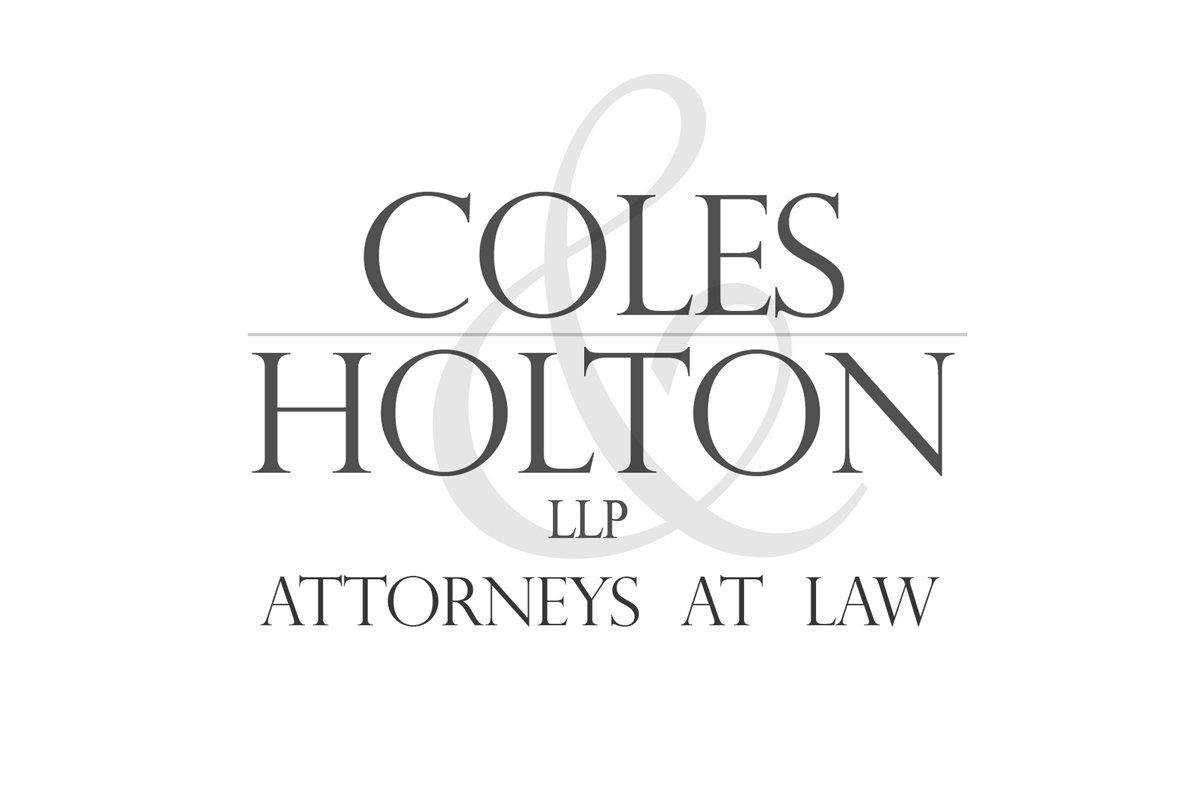CALL US TODAY | 615-712-9537
FAQs
BANKRUPTCY ATTORNEYS IN NASHVILLE, TN
FEARS
- Will bankruptcy ruin my credit score forever?
Many people avoid filing a bankruptcy out of the fear that their credit score will be forever ruined as a result. At Coles & Holton, we recognize that your credit score matters to you and you don’t want to throw an impeccable credit history away because you’ve had a hard time financially in recent months. The ironic truth is, filing a bankruptcy can actually help you rebuild your credit score much quicker than juggling your debts and trying to pay off all your creditors a little bit at a time.
- Will I have to appear in court before a judge?
In most cases, you will not have to appear before a judge. Most individuals who file bankruptcy are required to attend only a meeting of creditors, which simply involves meeting your trustee and answering a few questions about your case. Since creditors rarely show at these meetings, you can usually avoid personally facing your creditors altogether.
- Will I lose everything I own & have to move?
If you qualify for Chapter 7 bankruptcy, most if not all of your unsecured debts will be eliminated. Many people have the misconception that all of their assets will then be confiscated by their trustee. However, state and federal exemption laws will allow you to keep many of your possessions. In Tennessee, you are allowed to keep:
• Your house or homestead, which is the residential property you own and reside in. This exemption amount varies in different contexts, but a couple with minor children living in the house can exempt up to $50,000 of their home equity ($25,000 for an individual filer with minor children).
• $10,000 for individuals ($20,000 aggregate for couples) in personal property, which can include anything from the cash in your pocket to your furniture, car, savings accounts, stamp collections or whatever else you value.
• Retirement accounts, as long as the money remains in the accounts.
If you choose to claim the federal exemptions instead of the state exemptions, you will be allowed to keep only a certain amount in each federal exemption category. Categories exist for vehicles, jewelry, "wildcard" items and other assets. You can also keep your property, if you decide to file for Chapter 13 bankruptcy. Your debts would be reorganized into a repayment plan over three to five years. After that time period, any remaining debts would be wiped away and you would be able to keep your property.
- I feel embarrassed that I let my situation get so far, is there hope for me?
We are devoted to helping you achieve a true financial fresh start with as little stress and anxiety as possible. Most of our clients tell us how the filing of their case alone has lifted a dark cloud of stress and worry that has followed them around for years. The peace of mind that comes along with the removal of such an extreme source of anxiety truly can be a physically healing event.
CONSULT
- Do I need to bring all my bills?
Don't worry, you don't need to search through and find a bill from every single creditor. If you decide to file, we may be able to run a free credit report for you (if you haven't run one in the last 12 months). Other documents we need for your consultation are:
-Proof of previous six months of income for you and your spouse (if married)
-List of creditors or bills you have in hand
-Previous two years tax returns (including any business returns)
-Driver's license and social security card
- Can I stop a garnishment?
As soon as the bankruptcy case is filed, you will immediately have the protection of the court, which is called an automatic stay. It stops most creditors from being able to take further actions to collect debts, file lawsuits or sanction garnishments from your bank account.
- If I have filed bankruptcy before, does that keep me from filling again?
In most circumstances you should be able to refile. It may mean that you may need to file under a different chapter in the bankruptcy code.
- Will I be able to meet with an attorney or a paralegal?
When you schedule a consultation with our office, you will meet with an attorney. You will spend a few minutes at the beginning of your meeting with our legal assistant, but then your consultation will be with either Josh or Nick. Unlike bigger firms, even after your case has been filed, you will still have your attorney available to you. Your case will not be passed off to a paralegal and Nick or Josh will be available to discuss your case in person or over the phone.
RELIEF
- No more pesky collections calls!
As we mentioned before with garnishments, as soon as the bankruptcy case is filed, you will immediately have the protection of the court. It stops most creditors from being able to take further actions to collect debts or even contact you directly. You will be able to answer your phone without being harassed. Chapter 13 bankruptcy is a process through which consumers can save their secured property from foreclosure or repossession and repay some or all of their unsecured debts over a three to five year period. During this time they are protected from collection attempts by their creditors. One does not need to be employed to file chapter 13, just receive a steady income (i.e., SSI, unemployment, rent from tenants, etc.). Chapter 7 bankruptcy is a type of bankruptcy in which the client can rid themselves of their unsecured debt and start fresh. The process of filing a Chapter 7 case, from the signing to the discharge, can be completed in a few months' time. You also have the choice to reaffirm or to surrender loans on secured debts.
- What's my goal?
To protect and keep property, stop collection attempts, or get a fresh start, bankruptcy could be a good option for you.
- Do I have other options?
There are options other than bankruptcy and you may, after coming in for a consultation, decide that bankruptcy is not for you. If it is not the best option for you, we will be honest. We want you to make the best decision for you and your family. Some mortgage companies may assure you that a loan modification or refinancing your home is a formality, but that is hardly a certainty. In our experience, we have seen that those assurances don't come through which in turn leaves little or no time to pursue other options. We are not intimidated by your questions, we strive for each client that walks through our door to have a better understanding of the options available.
- How do I choose between a chapter 7 and a chapter 13?
Chapter 13 bankruptcy is a process through which consumers can save their secured property from foreclosure or repossession and repay some or all of their unsecured debts over a three to five year period. During this time they are protected from collection attempts by their creditors. One does not need to be employed to file Chapter 13, just receive a steady income (i.e., SSI, unemployment, rent from tenants, etc.). Chapter 7 bankruptcy is a type of bankruptcy in which the client can rid themselves of their unsecured debt and start fresh. The process of filing a Chapter 7 case, from the signing to the discharge, can be completed in a few months' time. You also have the choice to reaffirm or to surrender loans on secured debts.
DECIDE
- Do I have to show up for my court date?
Once the bankruptcy has been filed, there is only one meeting you will have to attend. This meeting is called the Meeting of Creditors or the 341 Meeting. In this meeting you will convene with the trustee and your attorney to answer a few questions. Rarely are there any other meetings or court appearances that you must attend.
- I now have court protection
The filing of a bankruptcy case - whether a Chapter 13 or Chapter 7 bankruptcy - immediately imposes an automatic stay against any attempts a creditor may take to collect their debts from you. This means that once your case is filed, your mortgage company is legally obligated to immediately cease the foreclosure process and remove your property from the auction list. The automatic stay also immediately stops harassing phone calls from creditors, repossessions of vehicles, collection or recovery attempts, and lawsuits or wage garnishments.
- Fresh start
We recognize that the extreme stress brought on by persistent collection creditors who ruthlessly harass you about unpaid bills is the last thing you need. Let us help you stop these and enable you to start fresh so your hard earned money can be used for the things that matter most.
WE'RE HERE TO HELP! CONTACT US TODAY.
We will get back to you as soon as possible
Please try again later
Coles & Holton LLP assists the Greater Nashville and Middle Tennessee areas including Davidson County, Montgomery County and Robertson County. Areas include Clarksville, Springfield, White House, Goodlettsville, Hendersonville, Gallatin, Ashland City, Pegram, Belle Meade, Lebanon, Smyrna, La Vergne, Brentwood and Nolensville.
CONTACT INFO
All Rights Reserved | Coles & Holton | Powered By Flypaper Nashville | Privacy Policy

